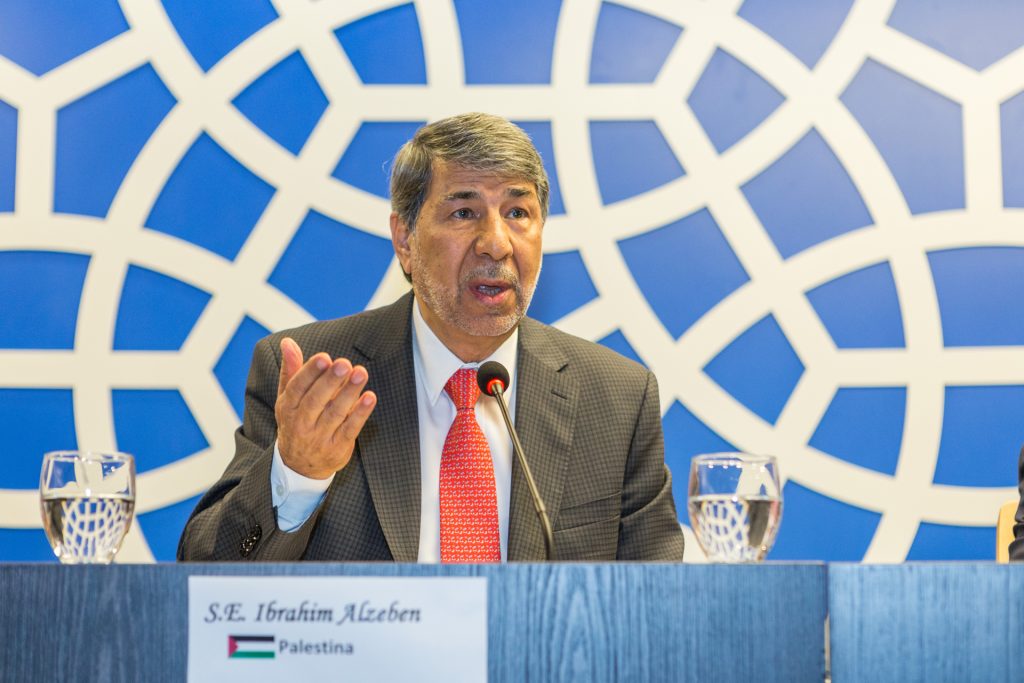São Paulo – Brazil was one of the first countries to provide aid to Lebanon after the Port of Beirut blast in early August. The dean of the Council of Arab Ambassadors in Brazil and ambassador of Palestine, Ibrahim Alzeben, discussed the matter with ANBA. On behalf of the Arab diplomats in the Council, he thanked all of those that enabled the provision of aid, including the Arab Brazilian Chamber of Commerce (ABCC), for their support and solidarity.
By way of the Lebanon Humanitarian Aid Group, which includes the ABCC, nearly 70 tons’ worth of donations have been collected across Brazil. The group comprises organizations, hospitals, churches, government entities and diplomats. Its work has relied on federal government support to ship out a first batch on a Brazilian Air Force airplane in early August. The items were delivered in Lebanon by an entourage led by former president Michel Temer.
Alzeben said support and solidarity among Arabs is a patriotic, humanitarian duty. “Brazil’s stance on this is a humane act that we hold in the highest regard,” the diplomat said. “In the capacity of dean of the Council of Arab Ambassadors, I would like to thank the Arab Brazilian Chamber of Commerce, its president (Rubens Hannun) and secretary-general (Tamer Mansour) for making the entire personnel available to work, collaborate and support Lebanon in getting over the tragedy that has taken place,” he said.
The ambassador said that the Council of Arab Ambassadors in Brazil is committed to supporting efforts to supply aid to Lebanon at every possible level. He expressed his approval and support of the donation campaign. Alzeben gave thanks to Chamber of Deputies and Senate members for speaking out in support of Lebanon, and to the Brazil-Arab Countries Parliamentary Group for its help towards the cause.
Alzeben stressed the role of Brazil’s federal government and president Jair Bolsonaro in the provision of aid to Lebanon. Apart from handling transportation of some of the donated items, the administration has made donations itself – including a 4,000-ton load of rice on board a ship. Bolsonaro joined a solemnity that marked the shipping of the goods in early August in São Paulo. “Whatever we can offer, much of which comes from the Lebanese community, we do it from the heart, the president Bolsonaro said on the occasion.
Alzeben also made mention of former president Michel Temer’s role as leader of the Brazilian mission to Lebanon. “His visit created a deep sense of gratitude across Lebanon and the entire Arab world,” he said. Additionally, the dean relayed his gratitude to Brazil’s Minister of Defense Fernando Azevedo e Silva; Minister of Agriculture Tereza Cristina; and the Ministry of Health. On behalf of the Council of Arab Ambassadors in Brazil, the ambassador wrote a letter to the ABCC acknowledging its work alongside all other parties in supplying humanitarian aid to Lebanon.
Alzeben notes that the Lebanon aid campaign will continue in a bid to help rebuild that which has been destroyed by the blast. “The damage from the explosion is enormous, and it requires long-term work,” he said. The ambassador believes it should be over a year before Lebanon can reclaim the Port of Beirut, which he dubbed “the Jewel of the Mediterranean.” Alzeben pointed out that the port is a historic site. “That entire coast of Lebanon, Canaan, Palestine, Syria is where the Phoenician civilizations set out across the whole Mediterranean to spread science and knowledge, and also to foster trade,” he said.
Regarding the Brazilian aid, Alzeben argued that the Brazilian people know how to express gratitude, and pointed out the relevant contribution of the Arab community to the forging of Brazilian culture. “Solidarity is a defining feature of Brazilians. Brazilians have supported each and every people struck by tragedy and catastrophe, and that has been recognized since the early 20th, and going into the 21st century. Brazil’s history of solidarity is worthy of note and respect,” he concluded.
Translated by Gabriel Pomerancblum




